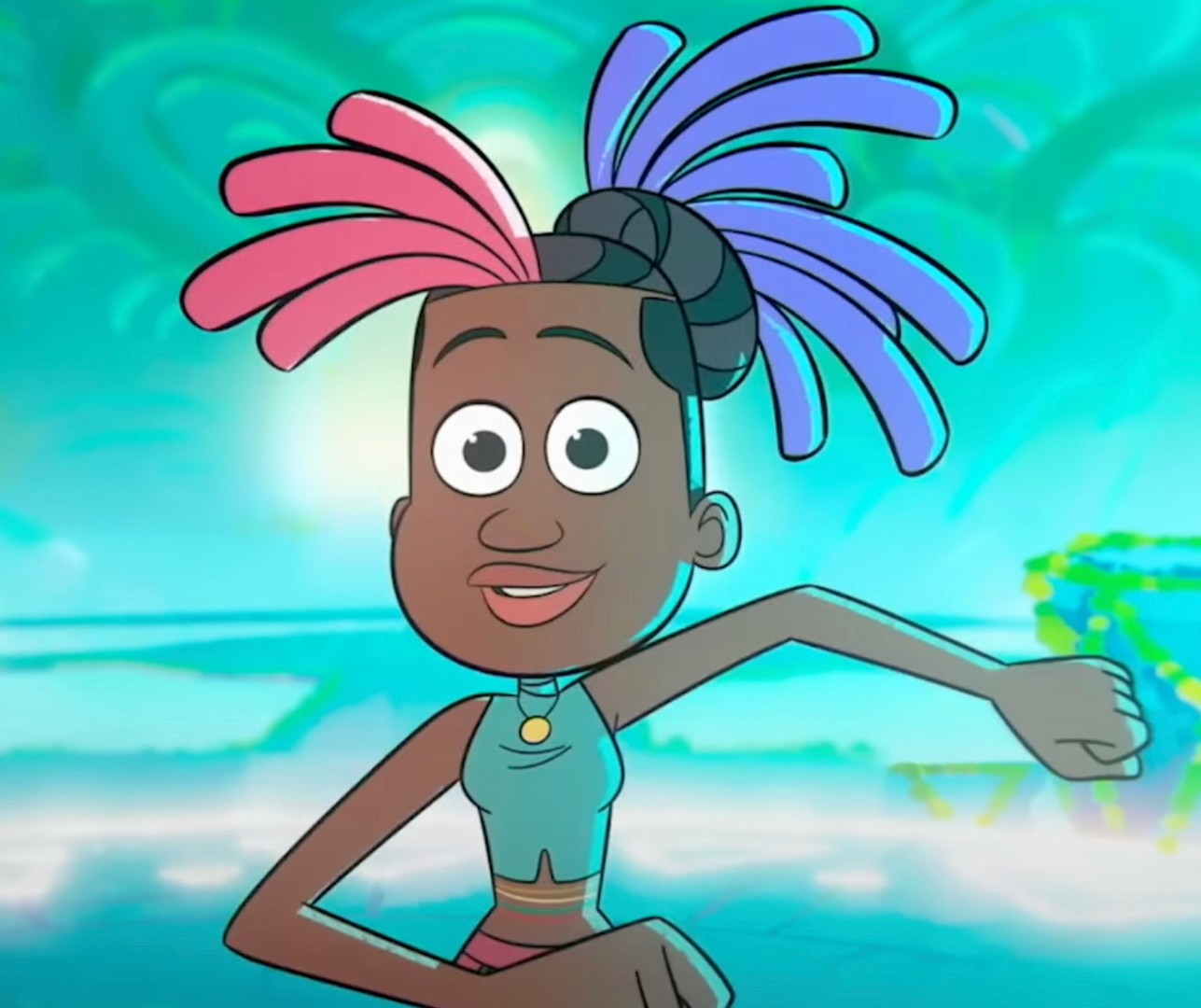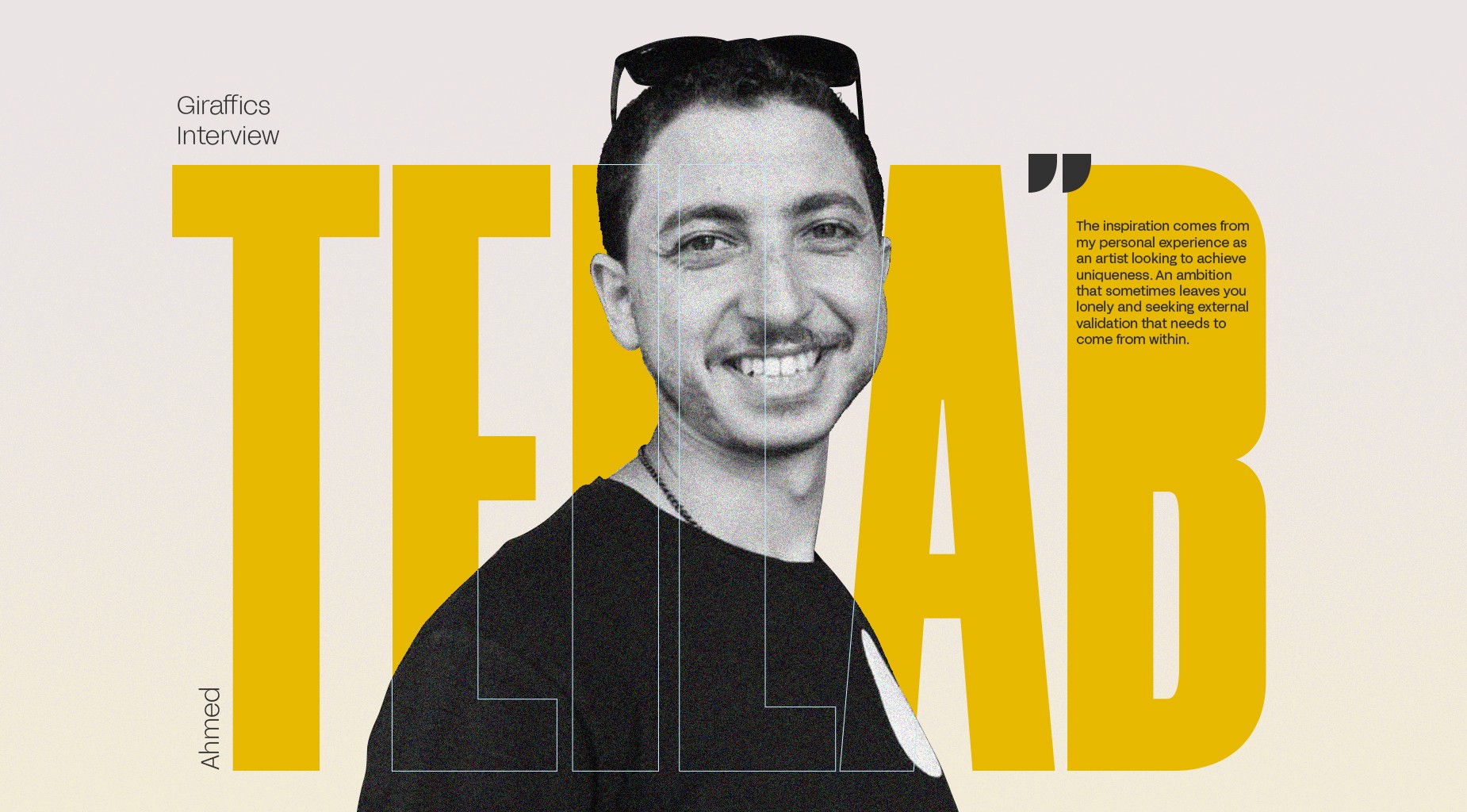
Aug 29, 2023
Artistry and Ambition: A Candid Interview with the Egyptian Director of the Disney+ Animated Short 'Stardust'
This interview was conducted by Giraffics own Art Director Amr El-Attar
As always, our team continues to take you on a journey with the masterminds behind some of the most impressive animation works. This newsletter's guest has been a longtime companion to Giraffics, leading and aiding various projects. Ahmed Teilab is a director, art director, concept artist, writer, and occasionally a painter who has created entire verses with just a stroke of a pen. Teilab is most notable for Suhail Adventures (2017) and Aviation Dream (2012). His latest work earned him the First-to-Do badge by becoming the first Egyptian to direct for Disney. The short film Stardust, part of the short film series Kizazi Moto: Generational Fire (2023), received some of the highest praise in the series. Read below to dive deep into Teilab's fantasy universe and the inspirations behind some of his best work.
1- What inspired you to create the story idea? Did Disney play a role in it?
The inspiration comes from my personal experience as an artist looking to achieve uniqueness. An ambition that sometimes leaves you lonely and seeking external validation that needs to come from within. Disney did not play any role in it.
2- Did the film turn out just how you imagined it, and what changed or evolved during the process?
The film turned exactly like I wanted it to be. Minor changes happened to the story along the way, and some sets were changed or deleted, but that's it.
3- How did you manage to convince the audience with the fantasy world you create in stardust?
For a world to become believable you need to build it on an assumption and stick to it. In the case of stardust, the world is a North African Oriental Islamic design that was never interrupted by the industrial age and is powered by stars. This idea is translated in all the machine designs, buildings and characters. Also make sure that the world is not just a backdrop for the story but a part of it. In stardust the scrolls, the cart, the observatory machine are story elements not just props.
4- Were there any sets that you were particularly happy with?
The observatory interior is probably my favorite set.
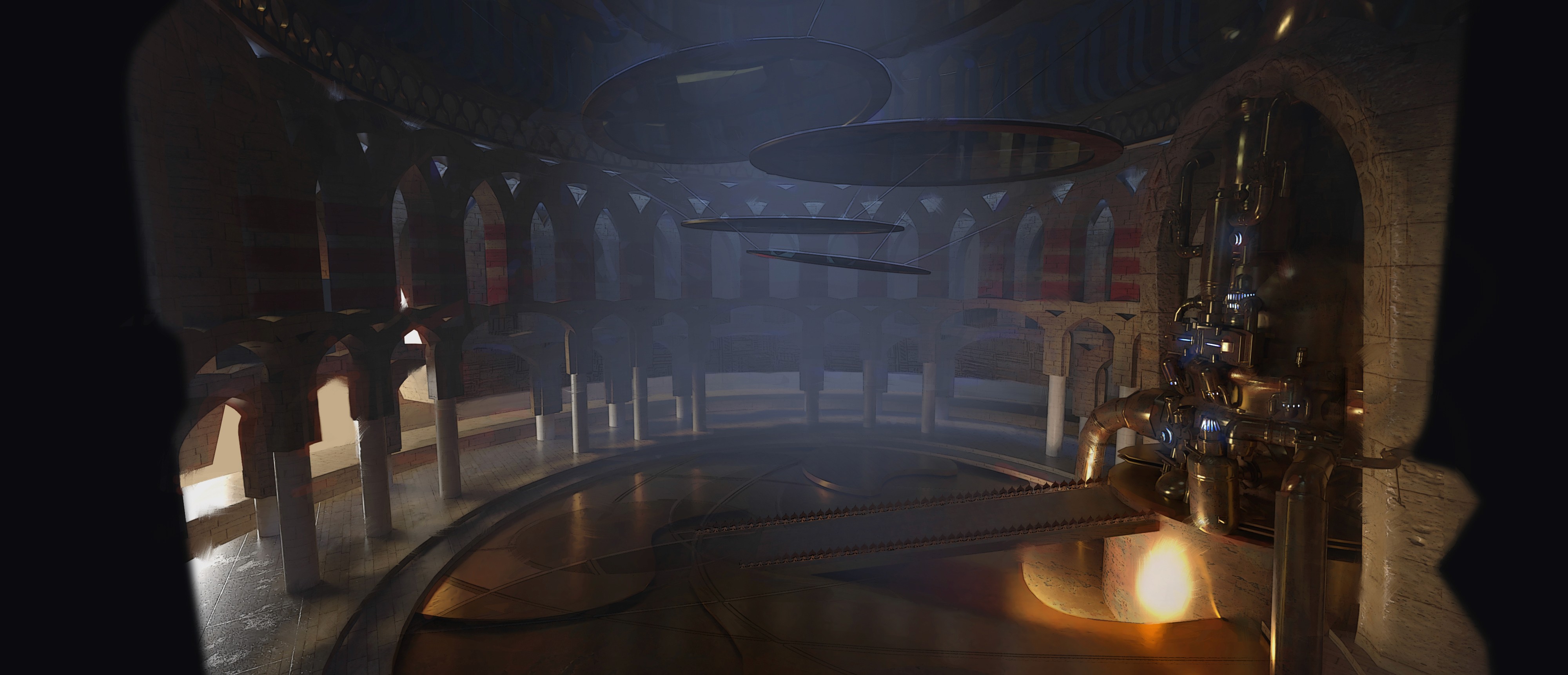
The Observatory interior
5- Which sets were changed or deleted, and how did that affect the film?
There was a chase at the beginning in the city alleyways that was cut for run time purposes and I wish I could have kept it. It showed more of the city and the architecture.
6- What were the major challenges and obstacles you faced from the initial idea to the final phases?
Nothing, I won't call it obstacles, but keeping the story simple and always focusing on the core theme, story, and philosophy. Also, not getting stuck in and married to a certain design or story beat was the most important thing.
7- You mentioned that keeping the story simple and focusing on the core theme, story, and philosophy was important. Can you tell us more about that?
Sure, The character "Nawara" is not trying to save the world or change it, she is trying to do something for herself. I tried to not have a lot of secondary characters thus keeping the story simple to fit a 10mins short. At the end you don't want the story to be rushed or for it to feel like a trailer.
8- What are some examples of times when you had to make changes to your story in order to keep it focused?
One example is that the story used to start in the stables with Nawara treating the animals and minding the stable but unfortunately it added time and dragged a bit. There was a whole scene of Nawara stealing the scrolls from inside the Oracle's cart while the Oracle was sleeping. I was really good but we had to cut it for runtime purposes also.
9- What were you most invested in during the production process?
Writing and pre-production are when things take shape and become solid, not just a loose idea in your head or a daydream, and I love that part.
10- What decides if a movie would work best for 2d or 3d production?
I wanted a film that looked like a 90s live-action film in terms of edit and cinematography from day one. It was always a 3d film in my mind.
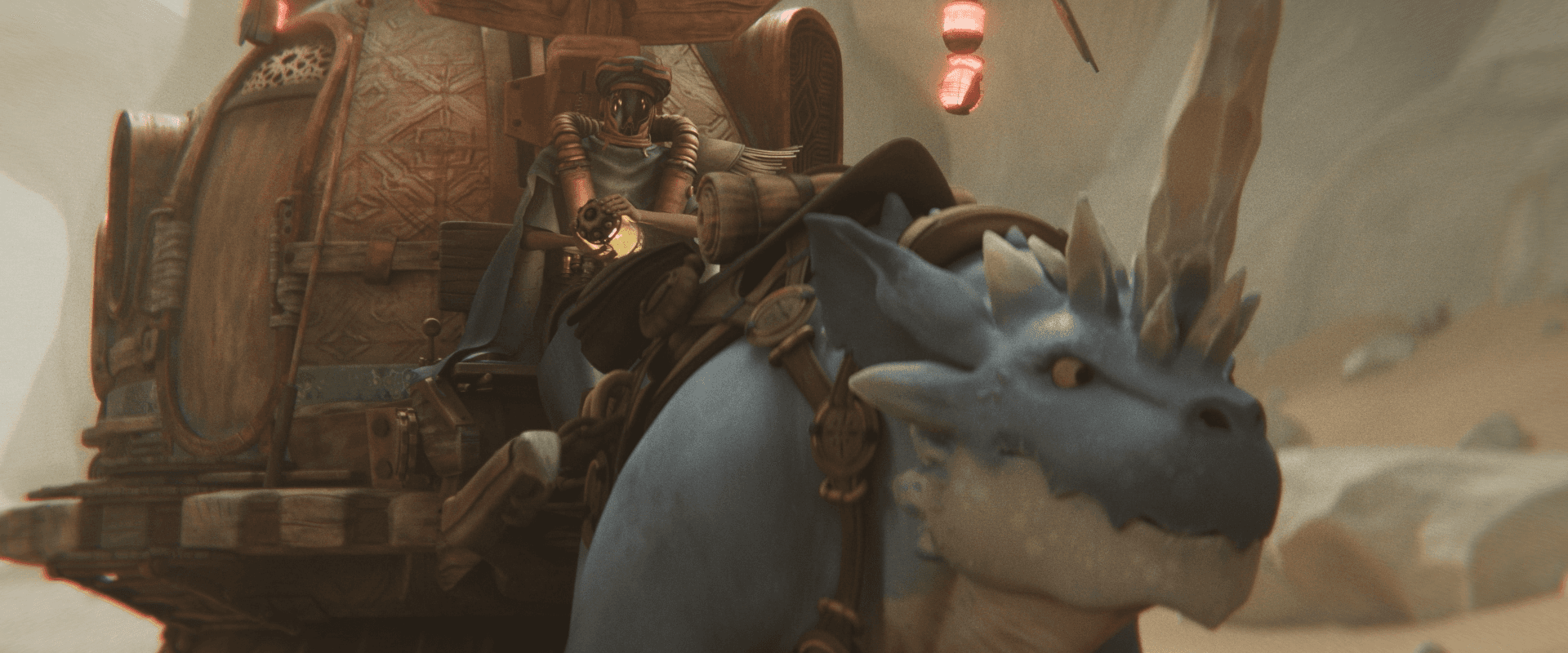
11- What are your favorite stories to tell, and how do you work on creating and narrating them?
I write to solidify my ideas and think about pressing issues or thoughts that I have. It's how I fix my own problems and organize my mind. So, I usually start with that and then try to find a less direct way to talk about this thought or point of view.
12- If you should pick one role in movie-making (directing, art directing, concept artist), what would it be & why?
I don't really care as long as I'm having fun, but if I have to choose, then directing, of course, because it means more control.
13- What are the key elements that predict a story's success?
I think it's different from one story to the other and from one person to the other but for me, it's emotional impact and the deep underlying philosophy of the story.
14- Are you looking to try different creative fields and genres in the future, or do you prefer improving and expanding on what you're already doing?
I'm already writing, painting, and directing. If I try anything else, my wife will kill me, so NO.
15- How and when did you get your kickstart in screenwriting?
I really can't track this down, but I always said yes whenever someone asked me if I could write!
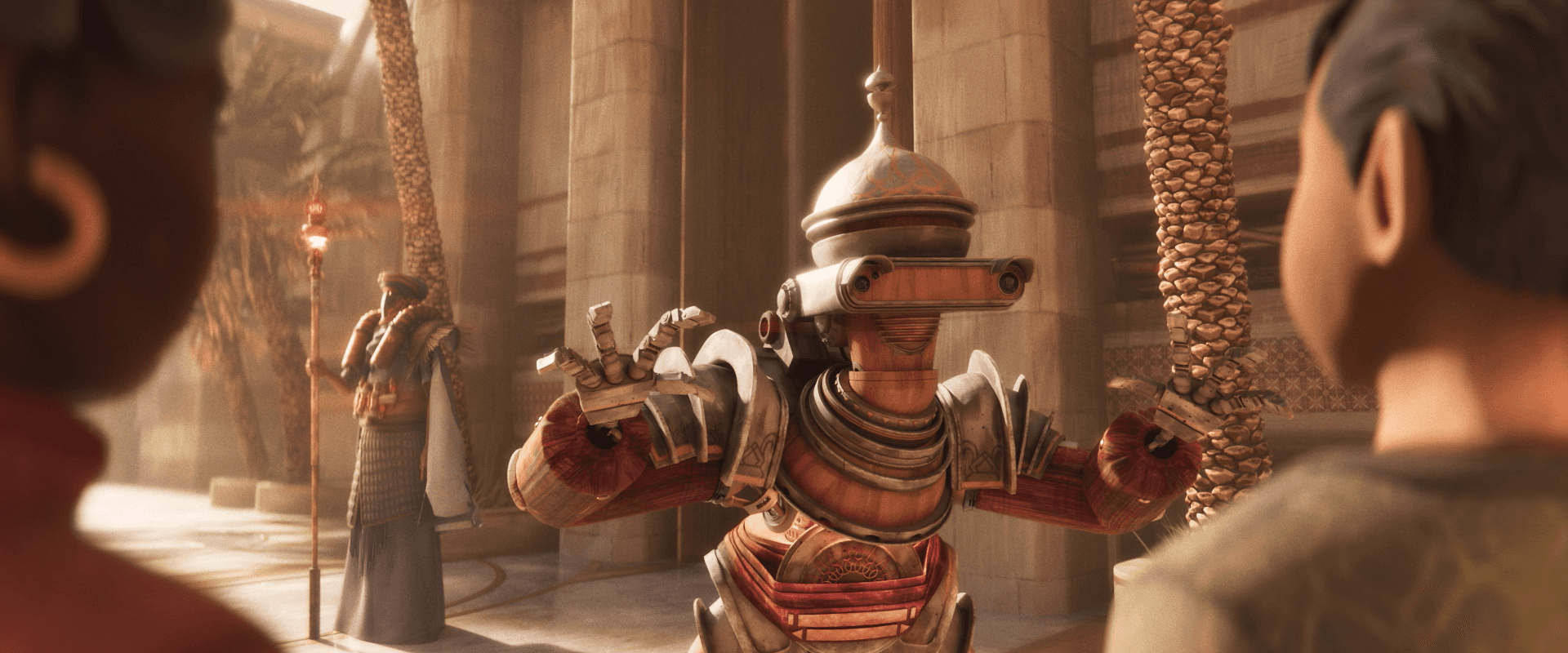
16- How did you learn to write stories? and what is the thing that attracted you to storytelling and painting in the first place?
I watched a lot of movies and series when I was young and I still do. I think this is where I get my writing sensibility plus reading a few books and above all practice, lot's of trial and error.
17- Do you have favorite writers? Can you name some?
I love Naguib Mahfouz and Mansy Kandil as Novelists, I love the coen brothers way of writing and taranitino's way of treating the dialogue, I love Edgar wright's style and Noah Baumbach.
18- What are some of your favorite books or movies that have inspired your creativity? and your favorite directors?
For this film specifically I looked at Dune, Indiana jones Raiders of the lost ark, the croods. In general there are tons but Pan's Labyrinth and Wall-E are always on the top of my list. Here are some of my favorites that I don't mind watching every day for the rest of my life, Lord of the rings, Arrival, Dune, Paprika, john wick, Dark Knight, Interstellar, District 9, A monster calls, breaking bad, the bear, the lion king, the Matrix, reservoir dogs, pulp fiction, sicario, forest gump, children of men, Harry potter and the Mandalorian. Top of my favorite directors right now in denis villeneuve.
19- What do you do to keep learning and leveling up (painting and directing wise)? and how do you manage your time?
I try to read as much as possible in different topics irrelevant to art. I show up everyday, it doesn't matter if I'm tired, happy, uninspired or whatever. Just consistency. I compare myself to myself the year before. I compare myself to top artists, writers, directors in the world and see where I fell short, what I missed and what I need to learn more.
20- How do you keep yourself motivated when in doubt?
Paying for my kids' school :) . Joking aside I love what I do and I can't imagine myself doing anything else so when in doubt I remind myself that either this or accounting and I always choose this, no offence to accountants.
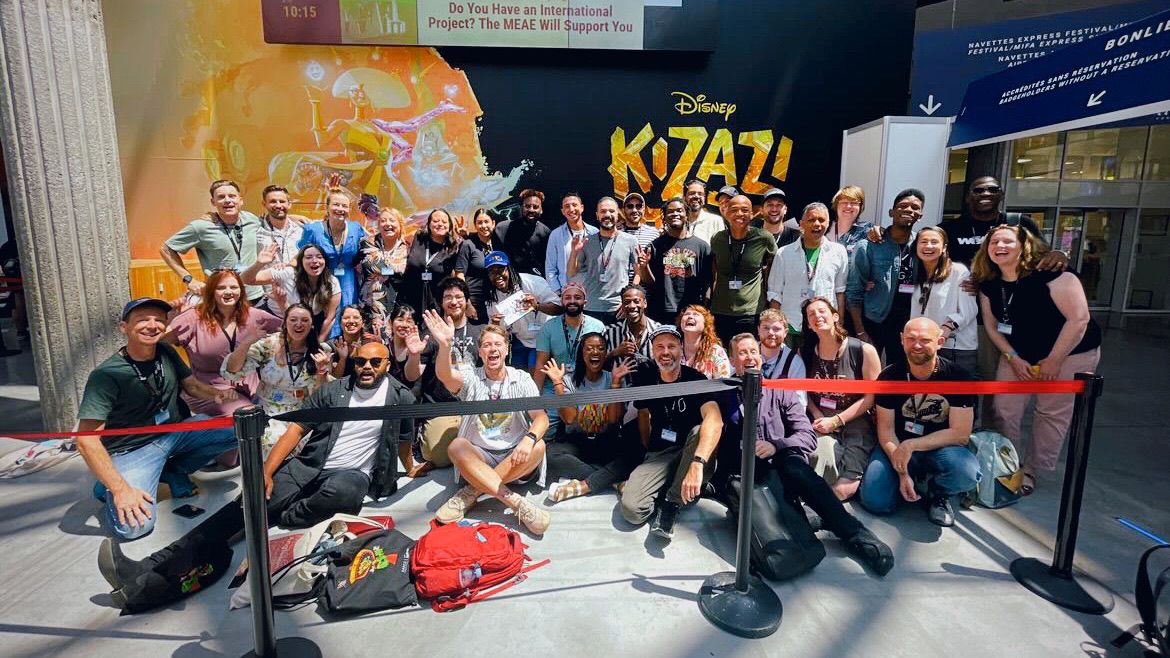
Teilab in Annecy with some of the Kizazi Moto team
With a never stopping train of thoughts, Ahmed Teilab works constantly to bring his ideas and stories to life. His inspiration comes from within by sitting down, organizing his thoughts, and writing it all out. However, reading and interacting with different people adds the needed kick to spice up his creativity. He believes stories should be impactful and speak out to the audience for them to become truly remarkable. When it came to the production of Stardust, Teilab was glad that his initial ideas almost mirrored the final result with just minimal changes. He owes the film's success to keeping it simple and focusing on the core theme without fixating on a particular beat or design. Finally, we could only end this by knowing what Teilab's favorite production stage is and its directing, of course. However, as long as he is having fun and truly immersed in the process, Teilab doesn't mind going on and about every stage of creating a story.
